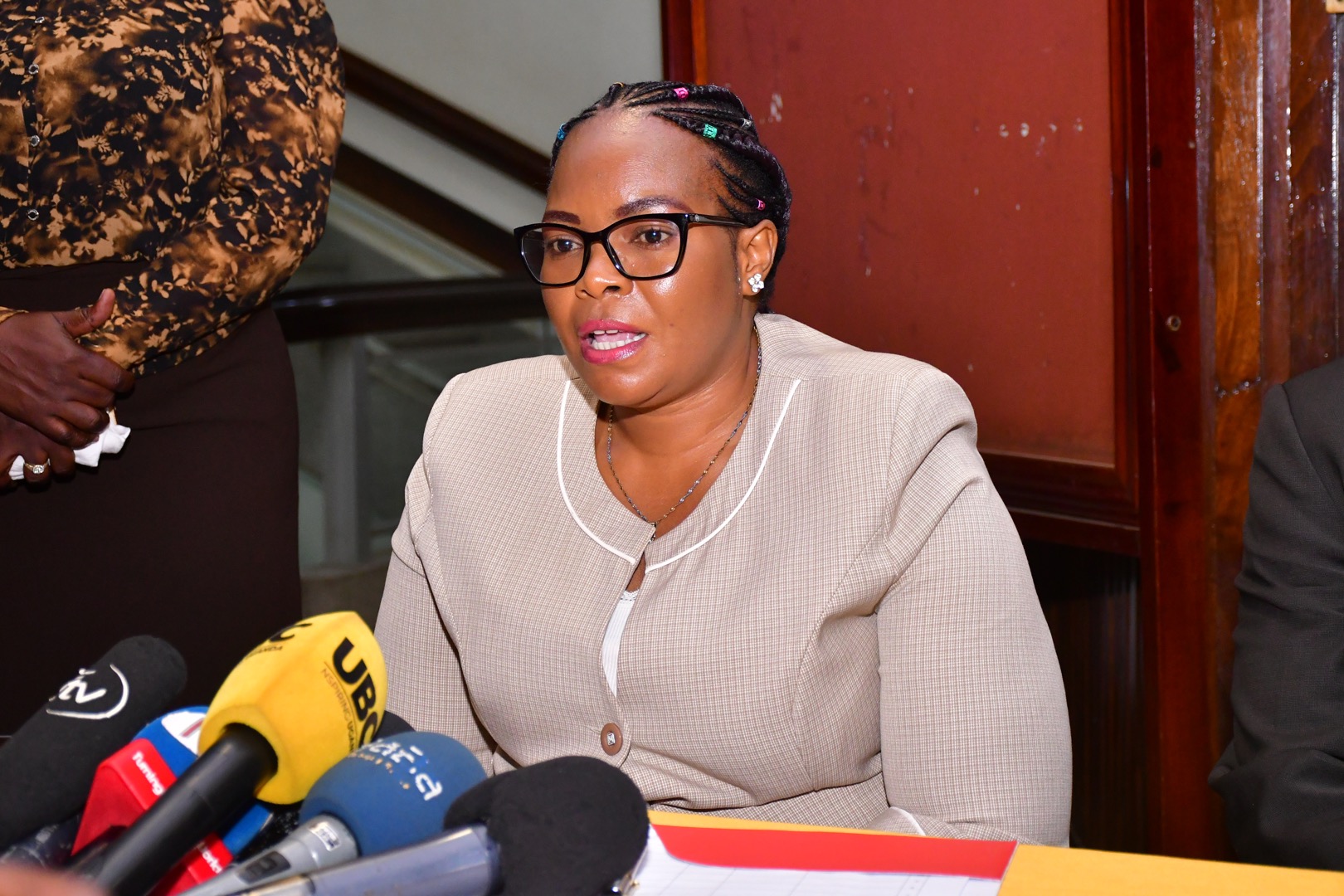
Minister of State for Housing, Persis Namuganza, has called on Ugandans to vote out any Members of Parliament who refuse to sign the censure motion aimed at removing four Parliamentary Commissioners accused of corruption.
The commissioners, including Esther Afoyochan Zombo District Woman represtative, Prossy Akampulira Rubanda District Woman represtative, Solomon Silwany member of Parliament for Bukooli Central, and Mathias Mpuuga member ofParliament representing Nyendo-Mukungwe, are alleged to have illicitly awarded themselves Shs1.7 billion and additional payments of Shs23 million each without parliamentary authorization.

Namuganza’s passionate address highlights growing frustrations over corruption within Uganda's legislative body.
"Corruption in Parliament has become unbearable," she declared.
She described a disturbing trend where MPs, including herself, encounter suspicious financial documents with no clear explanation of expenditures.
"I am asking all MPs who haven’t signed the censure motion to hurry up. If they don’t, I want to ask Ugandans to vote them out because their actions indicate support for corruption," Namuganza urged.
The minister didn't mince words in her criticism of those she sees as hypocrites. She singled out Hon. Mathias Mpuuga, who she accused of posing as a paragon of integrity.
"People like Hon. Mpuuga acted as saints during my censure, yet I was never accused of corruption. Now, his supposed integrity is nowhere to be seen," she said,
Emphasizing the need for genuine accountability and transparency.

Namuganza warned against external influences interfering with the censure process. She called on religious and traditional leaders to refrain from meddling in parliamentary matters, stressing that corruption is too grave an issue for negotiation.
"We can’t hold negotiations over corruption," she asserted. "Our party, NRM, is losing support due to corruption. I have appended my signature to the censure motion to see my party continue in power and to stand against corruption."
She further dispelled rumors suggesting that President Museveni opposes the censure motion.
According to Namuganza, such rumors are baseless and misleading, painting the President as tolerant of corruption. "The President communicates through official letters and the NRM caucus. Since no such communication has been made against the motion, MPs should proceed and sign it," she clarified.

Namuganza’s comments have sparked significant debate, reflecting the broader public’s growing impatience with corruption and the perceived complicity of some lawmakers.
The call to action puts pressure on MPs to take a definitive stand on the issue, with Namuganza framing the upcoming votes as a litmus test for integrity and commitment to anti-corruption efforts.The controversy stems from the alleged misappropriation of substantial funds by the four parliamentary commissioners, raising questions about the accountability mechanisms within Uganda’s legislative framework.
Namuganza’s speech underscored the need for robust oversight and the active participation of all MPs in rooting out corruption.
The unfolding situation puts several MPs in a difficult position. By siding with the motion, they align with anti-corruption efforts but potentially alienate powerful colleagues. Conversely, refusing to sign could be politically costly, especially in the face of Namuganza’s stark warning to voters.As the May 29th deadline for the censure motion looms, all eyes will be on Parliament to see how lawmakers respond.

Namuganza's call to vote out non-compliant MPs may resonate with a populace increasingly fed up with corruption, potentially leading to significant political repercussions for those seen as obstructing justice.
The unfolding situation puts several MPs in a difficult position. By siding with the motion, they align with anti-corruption efforts but potentially alienate powerful colleagues. Conversely, refusing to sign could be politically costly, especially in the face of Namuganza’s stark warning to voters.
As the May 29th deadline for the censure motion looms, all eyes will be on Parliament to see how lawmakers respond. Namuganza's call to vote out non-compliant MPs may resonate with a populace increasingly fed up with corruption, potentially leading to significant political repercussions for those seen as obstructing justice.











